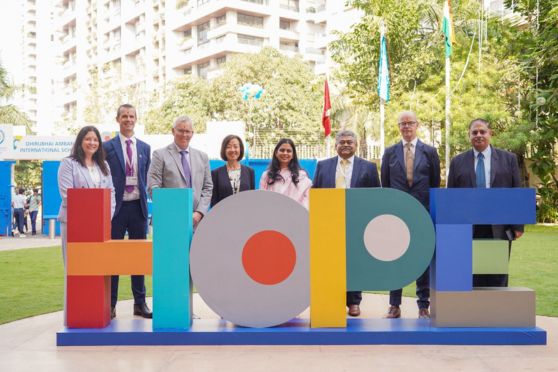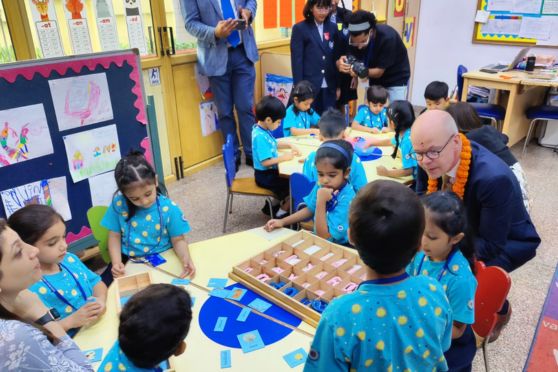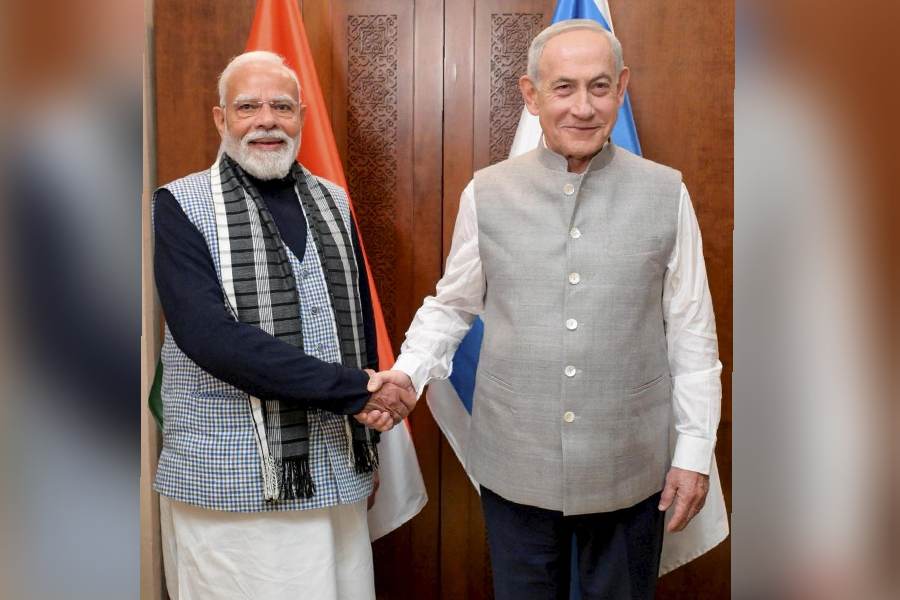India for long has abided by the central affiliated boards such as CBSE, ICSE and state-run boards. For a country such as ours, with a youth-centric population, education becomes essential. Policies and reformations such as NEP have paved the way for better and more comprehensive education, inviting international board examinations such as the IB (International Baccalaureate) to step into the Indian education system.
To understand IB better and how it can transform traditional Indian education, we, at Edugraph, caught up with the Director General of the International Baccalaureate (IB) and former Director of the Finnish National Agency for Education, Olli-Pekka Heinonen and Nicole Bien who is the curriculum advisor roles in international school, as they share their insights on how IB can be a change maker in the school curriculum and who should opt for this programme. Excerpts from the interview.
1. What is International Baccalaureate (IB) about?
Olli-Pekka: The International Baccalaureate (IB) is a global leader in international education—developing inquiring, knowledgeable, confident, and caring young people. Our four programmes for students aged 3 to 19 empower school-aged students to take ownership of their learning and help them develop future-ready skills to make a difference and thrive in a world that changes fast.
The IB’s current projects include innovative global initiatives to make the programmes, subjects, and assessments more flexible, future-oriented, and responsive to school and student contexts by placing choice, well-being, and real-world relevance.
2. Tell us about the programmes and services that IB offers in India.
Olli-Pekka: The IB aims to offer the best possible international education for students of all backgrounds and from every part of the world. The IB footprint spans across 159 countries and more than 5,600 schools, developing the skills of more than 1.95 million students in critical thinking, and courageous risk-taking and moulding them into empathetic human beings. As of June 2023, there are over 7,900 IB programmes offered worldwide.
The IB offers four challenging, high-quality educational programmes: The Primary Years Programme (PYP), Middle Years Programme (MYP), Diploma Programme (DP) and Career-related Programme (CP). These programmes foster diversity, curiosity, and a positive attitude towards learning, encouraging personal development and academic achievement. Students are challenged to think critically, ask the right questions, and think across disciplines, ultimately setting them up for success in higher education and eventually the workforce.
India is a country with one of the largest youth populations in the world, and they have always showcased the passion and innovative spirits of young people and educators across the country and worldwide. Therefore, the IB works with Indian schools, governments, and international organisations to build partnerships and develop challenging programmes of international education and rigorous assessment, which encourage students to become active, compassionate, and lifelong learners.

IB Spokespeople with Isha Ambani.
3. Explain how the IB works with Indian institutions, institutions of higher learning, and governments to efficiently implement programmes.
Olli-Pekka: The first IB affiliated education in India was in 1976 and as of 2023, there are currently 209 IB world schools in this country. We have also signed an MoU with the Haryana School Education Board (HSEB) to ensure our programmes are introduced in Indian schools across the country.
4. How does the IB's curriculum fit with the educational requirements and cultural background of Indian students?
Olli-Pekka: The IB curriculum is designed for students from all cultures and backgrounds across the world, giving students the grounding to develop the cognitive, social, and emotional skills they will need to thrive.
Known for its international-minded atmosphere, where the student can master a second language and develop nuanced cultural awareness, helping them become more open-minded and providing the opportunity to live and work in different countries.
Fostering a caring attitude, the IB provides opportunities to students where they can get involved in their local community through personal projects and service. This will enable them to reimagine solutions or devise better ones through creativity and confidence, so they can take action to make the world a better place.
5. Why should students opt for IB and how can they benefit from it?
Olli-Pekka: The IB programmes usually set themselves apart from other curricula as they focus on critical thinking and values. We do not believe in testing students on rote memorisation and regurgitation of information.
- Holistic approach and independent thinking — The structure of the IB programmes encourage students to make connections between their instincts and what they are learning; and for them to develop a balanced, holistic, and deep education compared to other programmes.
- Challenging and equipping students — The IB programmes challenge and stimulate students by exposing them to a variety of subject areas and activities, both in and outside of the classroom. The IB programmes aim to provide an education that enables students to make sense of the complexities of the world around them, as well as equip them with the skills and dispositions needed for taking responsible action for the future.
Programmes like the Creativity, Activity, Service (CAS), alternative assessment pathway and Career Programme (CP) allow students to have real-world experiences and prepare for the workforce.

Pic - Olli-Pekka Heinonen, Director-General, International Baccalaureate, engages in meaningful dialogue with young learners at Dhirubhai Ambani International School, Mumbai.
6. Why do Indian schools need IB?
Nicole: India is definitely going through rapid economic growth, and has a culture which values education. While visiting India, we also had an opportunity to meet with local officials, including the Ministry of Education. it was really great for us to see that the new education policy is placing a very strong focus on student-centric learning, concept-based learning and holistic learning. Rather than relying on rote learning to prepare students for a future that is heavily dominated.
The IB, for a long time, has focused on competency-based learning and the type of assessment that really aims at developing skills and competencies. There's a really strong alignment between the NEP and the IB's educational aims. So I believe that schools in India see this as a value in terms of being able to deliver the Indian curriculum within the IB framework to offer the best of both worlds really to Indian students now.
This also provides Indian students with more options post high schools for higher education.
7. How will the teachers benefit from the international-level training provided by the IB Board?
The IB recognises that educators lead the way in providing comprehensive international education for students.
- IB Educator and Leadership Certificates (IBEC): Provide teachers with a rich learning experience, ongoing professional development, and the flexibility to follow a learning model that best fits individuals’ career paths.
- Teacher Support Networks: This promotes collaboration and networking among teachers through various initiatives, including online forums, discussion groups, and communities of practice. These platforms allow educators to share best practices, seek advice, and engage in professional dialogue.
- IB Exchange is an interactive space where IB educators can access thousands of resources to support teaching in their programme and subject, connect with and learn from peers, and elevate their expertise by contributing their teaching and learning insights within a global network of educators.










